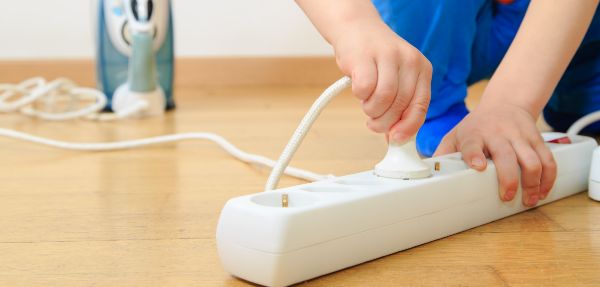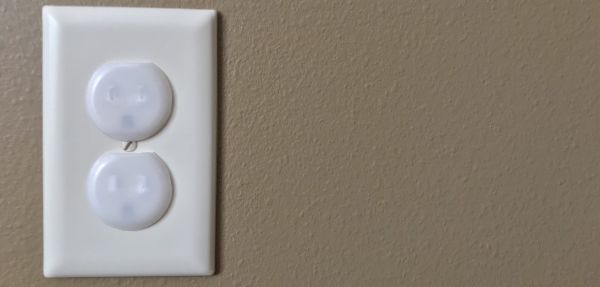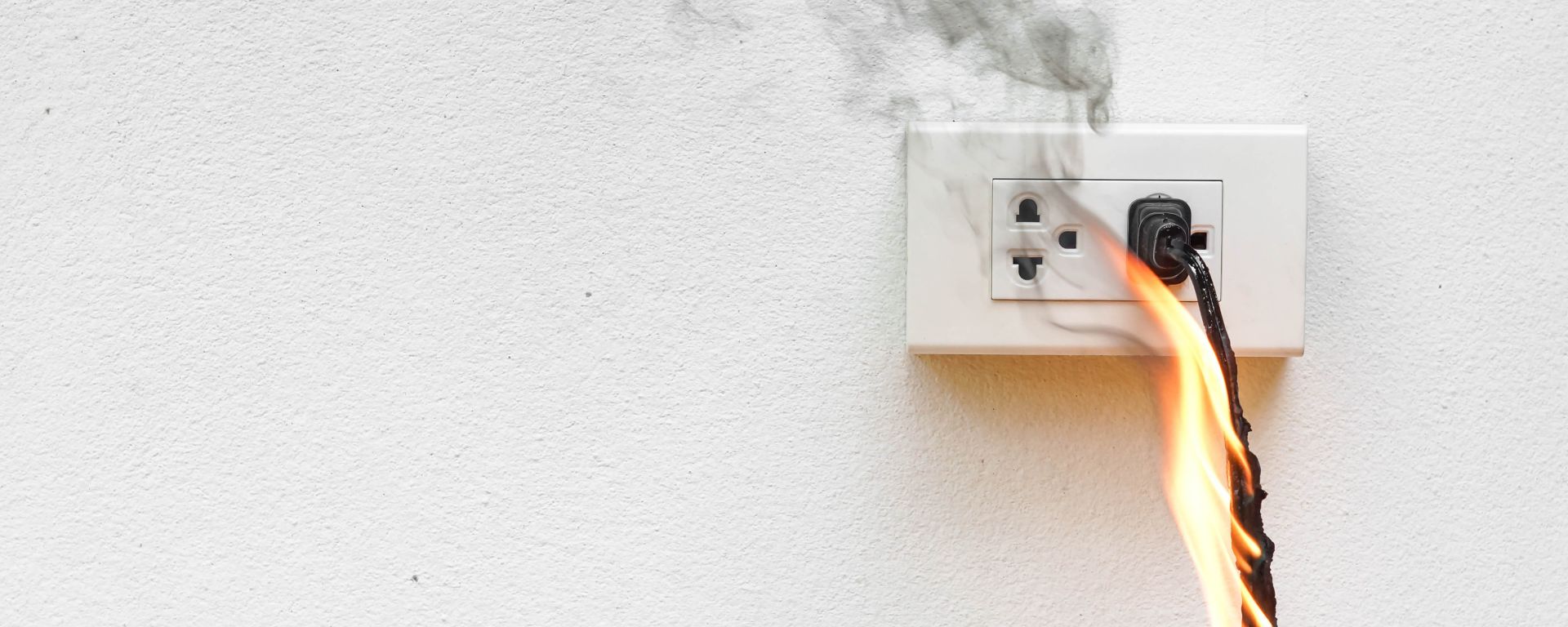Electricity is a necessity that keeps everything running, and our lives moving. Even seasoned homeowners have to give all electrical items in the home an occasional check-up to ensure that wiring, circuit breakers, outlets, and plugs are in working condition and used safely. Electricity must be handled carefully because it’s incredibly powerful. Particularly with load shedding every day, it’s a good idea to inspect electrical systems throughout your home. To help you with the right maintenance on electrical systems, we’ve created a list of 9 simple tips and to-dos to double check that your home’s wiring is done safely, and to keep your home safe from common electrical dangers.
- Don’t overload outlets
- Use of extension cords
- Routine checks
- Electrical problems
- Keep water away from outlets and devices
- Be careful with DIY
- Unplug appliances not in use
- Arc Fault Protection Interrupter
- Childproof outlets

1. Don’t Overload Outlets
Many electrical problems result from overloaded outlets. If an overload is taking place, the outlet will feel warm, look scorched, or possibly have a burning smell. Avoid overloads by trying not to plug in appliances with extension cords, or using a multi-outlet converter. Also, try to only plug in one heat-producing appliance at a time. If you have old outlets or wires, call an electrician to upgrade them.
2. Extension Cords

Extension cords should only be used for short periods. Never plug a fridge, air conditioner, hairdryer, or cooking appliances into an extension cord. Replace any cord that is frayed or cracked and don’t staple any power cord in place if it’s torn, or place it underneath furniture or rugs. Rather add more outlets to your home if you use extension cords too often.
3. Routine Checks
It’s good to check your electrical system now and then. Make sure that the switches are working properly and that plugs fit into the outlets properly. Check the wattage on bulbs and make sure that they’re fitting in compatible lamps. Insulation wires should be intact and wires mustn’t be pinched by windows, doors, nails, or staples. Make sure that appliances and wiring do not come into contact with water.
4. Signs Of Electrical Problems
Know the signs of electric damage to keep you and your family safe from danger. If you notice any of the following, call an electrician to take a look:
- Circuit breakers tripping.
- Lamps, outlets, or appliances making a buzzing sound.
- Lights are beginning to flicker or bulbs burn out.
- An electrical outlet sparks.
- Strange odours are coming from electrical devices.
- Switches, outlets, or lamp fixtures feel warm.
- Wires are torn, show teeth marks, or other signs of damage.
- You get burnt or shocked when using outlets.
5. Keep Water Away From Outlets And Devices
Water and electricity don’t mix. If they are exposed to each other, severe damage to appliances or electrocution can occur. Make sure your hands are dry before working with any electrical equipment. Sinks, bathtubs, plant pots, fish tanks, and other sources of water must be kept away from electrical appliances and devices. They can result in serious problems if moisture gets onto them.
6. Be Careful With DIY
Often, when doing home renovations, electrical repairs can stop you in your tracks. When wiring needs to be done, it’s recommended that you contact a professional to oversee the project.
If you need to complete simple DIY projects for anything electrical, be sure to switch the breaker off for that area of your home before you start working. Unplug all appliances and lamps before making any simple altercations, even changing a light bulb. Anything past this will require the help of a professional electrician to avoid shocks, fires, or electrical wiring issues that could affect the rest of your home.
7. Unplug Appliances Not In Use
If you do not need an appliance at all times, such as a slow cooker, blender, or hair straightener, unplug the item when it’s not being used. Be sure to store it safely away from children and pets.
If you’re going on holiday, consider unplugging energy-consuming electronics like modems, computers, and chargers.
8. Arc Fault Protection Interrupter
Arc Fault Protection Interrupter (ACFI) can detect the moment any damaging fault damages occur by cutting off the power before problems worsen. Arc faults cause home fires from issues with damaged wires, outlets, and appliances. They are more likely to be found in old or poorly wired homes.
9. Childproof Outlets

Tamper Resistant Receptacles or TRRs are the solutions for small children. If you have little ones around, TRRs provide a spring-loaded cover to wall outlets to keep anyone from inserting unwanted objects into the wall. The outlet must receive simultaneous pressure on both sides to release, just like a regular plug.
Conclusion
Electricity and electric safety are important things that should be paid close attention to, especially as we attempt to ease the effects of load shedding. Have extra peace of mind by doing all you can to ensure electrical safety in your home.
Keeping a clean home can minimise certain electrical safety hazards. If you need a home clean but don’t have the time, book with SweepSouth so your home can be cleaned professionally.








